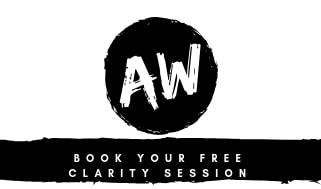
“Life Coaching” is a relatively new, and to many strange, field so I’m sure you have questions. Here are some commonly asked ones and their answers:
What is a life coach?
A life coach is someone who helps give you perspectives and strategies for your life to help you improve the results you are getting. Most of the time we are people who ask really good questions.
What type of payments do you accept?
Invoices are sent via PayPal which allows you to pay via any payment method through the most trusted payment processor in the world. If you prefer to pay with a cryptocurrency like Bitcoin or Litecoin, I am happy to accept that as well. In fact, you will receive a discount for paying with cryptocurrency.
Who needs a life coach?
Everyone has coaches in their life. Often times we lean on friends and family for coaching, or bosses, or athletic coaches, or teachers, or even famous people you experience through books, videos, or instagram.
When you hire a coach, you will be getting a higher level of coaching if only for the fact a coach only has your best interest in mind. Family, friends, and employers all have their own interests at play when you lean on them for coaching.
Most of the time people who seek out coaching are either extremely results oriented people who have already had a lot of success and just want to keep an edge. Conversely, people who are having a really tough time accomplishing their goals and succeeding also seek out coaches as they feel like they are starting to scrape rock bottom.
However, people in the middle shouldn’t neglect their need for improvement. Those people who are on auto-pilot and doing pretty well have an incredibly high ceiling once they decide to work on getting better results.
What is the difference between therapy and coaching?
Coaching and therapy are kind of like cousins. They both give you an ally that wants to help you improve your life.
Coaching is for generally functional people who want to improve their lives. Coaching tends to look forward and at actionable steps you can take today.
The best therapists are starting to implement coaching in their own practices of therapy, but therapy on its own tends to look backward to excavate problems and solve root causes. It can be a long, if not forever, process.
Many people who benefit from coaching also benefit from therapy and vice versa.
If you have a mental illness or can’t function in life at a relatively “normal” level, then a psychologist or psychiatrist should be consulted prior to a coach.
We need to get past the stigma of asking for help in general and people shouldn’t be ashamed to have a coach or a therapist or both.
Are you better than me?
Absolutely not.
Coaches are regular people that have strengths, weaknesses, failures, and successes like everyone else. On any given day I work with people who are better than me at one or many things.
Just as some of the best relationship coaches and therapists have divorces in their past, life coaches are often trying to make progress on different areas of their life.
As sports fans know, Michael Jordan was a better basketball player than Phil Jackson and Tom Brady is a better football player than Bill Belichick ever was. However, having the right coach was part of the formula for these great athletes’ successes.
How much coaching do I need?
Everyone is different. Some people just like to talk to coaches to work through problems. Other high achievers like to talk to a coach weekly to stay ahead of the game and anticipate problems and be held accountable for their results.
Find the formula that works for you.
Why are there so many different coaches and where do you fit (business coaches, career coaches, life coaches, swagger coaches,etc)
We live in a niche world where it is easier to catch on when you have a niche. If you’re having struggles in your career, a career coach might be the right answer. They can help you learn how to interview well, write a good resume, and other specific career oriented things. However, if your career is failing because you’re fighting with your spouse and your kids are struggling in school, or you’re generally displeased with your work - niche coaches may or may not have the answers to these problems.
I’ve always enjoyed having a great general breadth of knowledge and that is the approach I took to my coach training. I’m comfortable tackling any area of your life because I believe that every area of our life is connected.
There’s nothing wrong with having multiple coaches if you have the bandwidth in your life for it. I personally take as much coaching as I can get.
Where did you learn to coach?
I got my first real taste for coaching and mentoring in the corporate world, but I’ve done various types of coaching since then. Small business coaching, athletic coaching, and more.
My formal coach training is through the Robbins/Madanes Training Center. A joint effort founded by life coach Anthony Robbins and highly regarded psychologist Cloe Madanes.
What is a life coach?
A life coach is someone who helps give you perspectives and strategies for your life to help you improve the results you are getting. Most of the time we are people who ask really good questions.
What type of payments do you accept?
Invoices are sent via PayPal which allows you to pay via any payment method through the most trusted payment processor in the world. If you prefer to pay with a cryptocurrency like Bitcoin or Litecoin, I am happy to accept that as well. In fact, you will receive a discount for paying with cryptocurrency.
Who needs a life coach?
Everyone has coaches in their life. Often times we lean on friends and family for coaching, or bosses, or athletic coaches, or teachers, or even famous people you experience through books, videos, or instagram.
When you hire a coach, you will be getting a higher level of coaching if only for the fact a coach only has your best interest in mind. Family, friends, and employers all have their own interests at play when you lean on them for coaching.
Most of the time people who seek out coaching are either extremely results oriented people who have already had a lot of success and just want to keep an edge. Conversely, people who are having a really tough time accomplishing their goals and succeeding also seek out coaches as they feel like they are starting to scrape rock bottom.
However, people in the middle shouldn’t neglect their need for improvement. Those people who are on auto-pilot and doing pretty well have an incredibly high ceiling once they decide to work on getting better results.
What is the difference between therapy and coaching?
Coaching and therapy are kind of like cousins. They both give you an ally that wants to help you improve your life.
Coaching is for generally functional people who want to improve their lives. Coaching tends to look forward and at actionable steps you can take today.
The best therapists are starting to implement coaching in their own practices of therapy, but therapy on its own tends to look backward to excavate problems and solve root causes. It can be a long, if not forever, process.
Many people who benefit from coaching also benefit from therapy and vice versa.
If you have a mental illness or can’t function in life at a relatively “normal” level, then a psychologist or psychiatrist should be consulted prior to a coach.
We need to get past the stigma of asking for help in general and people shouldn’t be ashamed to have a coach or a therapist or both.
Are you better than me?
Absolutely not.
Coaches are regular people that have strengths, weaknesses, failures, and successes like everyone else. On any given day I work with people who are better than me at one or many things.
Just as some of the best relationship coaches and therapists have divorces in their past, life coaches are often trying to make progress on different areas of their life.
As sports fans know, Michael Jordan was a better basketball player than Phil Jackson and Tom Brady is a better football player than Bill Belichick ever was. However, having the right coach was part of the formula for these great athletes’ successes.
How much coaching do I need?
Everyone is different. Some people just like to talk to coaches to work through problems. Other high achievers like to talk to a coach weekly to stay ahead of the game and anticipate problems and be held accountable for their results.
Find the formula that works for you.
Why are there so many different coaches and where do you fit (business coaches, career coaches, life coaches, swagger coaches,etc)
We live in a niche world where it is easier to catch on when you have a niche. If you’re having struggles in your career, a career coach might be the right answer. They can help you learn how to interview well, write a good resume, and other specific career oriented things. However, if your career is failing because you’re fighting with your spouse and your kids are struggling in school, or you’re generally displeased with your work - niche coaches may or may not have the answers to these problems.
I’ve always enjoyed having a great general breadth of knowledge and that is the approach I took to my coach training. I’m comfortable tackling any area of your life because I believe that every area of our life is connected.
There’s nothing wrong with having multiple coaches if you have the bandwidth in your life for it. I personally take as much coaching as I can get.
Where did you learn to coach?
I got my first real taste for coaching and mentoring in the corporate world, but I’ve done various types of coaching since then. Small business coaching, athletic coaching, and more.
My formal coach training is through the Robbins/Madanes Training Center. A joint effort founded by life coach Anthony Robbins and highly regarded psychologist Cloe Madanes.
CompanyLife coach based out of Indianapolis, IN but helping people everywhere.
|
|
